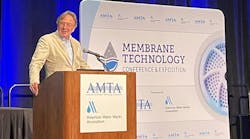WASHINGTON, DC, Dec. 31, 2013 – Three schools in the landlocked southern-African country of Zambia could soon see a significant improvement in their potable water quality thanks to the United States' Peace Corps.
People in Zambian communities currently travel long distances to retrieve water that frequently originates from unprotected sources like local streams, which often leads to water-borne illnesses and sanitation concerns at school facilities. As such, Peace Corps volunteer Emily McKeone of Omaha, Neb., is working with her community members and local school teachers to bring safe, clean drinking water to the schools to improve students' health and boost school attendance.
By constructing borehole wells, the communities' water sources will be protected from contaminants and safe to drink. The additional water supply will also support school construction projects and enable students and teachers to plant gardens and orchards. The resulting produce will help raise money to maintain the boreholes.
"School attendance by students and teachers will improve from enhanced sanitation and clean drinking water," said McKeone, who is a graduate of the University of Nebraska-Lincoln and has been living and working in Zambia since July 2012. "The schools currently have construction projects that have been delayed due to a lack of water, preventing completion of much needed classrooms, and these boreholes will allow for the completion of those projects."
McKeone's project is supported by the Peace Corps Partnership Program (PCPP), which helps fund Peace Corps volunteer community projects worldwide. The communities are providing materials and labor for construction of the boreholes and have developed an action plan for ongoing maintenance and education on their proper use.
In order to receive PCPP funding, a community must make at least a 25 percent contribution to the total project cost and outline success indicators for each individual project. One hundred percent of each tax-deductible PCPP donation contributes toward a development project.
Peace Corps volunteer projects around the world aim to improve sanitation and access to clean water in host communities. Volunteers help design and build potable water sources and sewage and irrigation systems; assist communities in accessing resources that will enhance their health and hygiene; and conduct community outreach to heighten awareness of water, sanitation, health, and environmental issues.
About Peace Corps/Zambia
There are currently 264 volunteers in Zambia working in the areas of education, community development, environment, agriculture, health and business. While in Zambia, volunteers learn to speak the local languages, including: Bemba, Kaonde, Lunda, Mambwe, Tonga and Tumbuka. More than 1535 Peace Corps volunteers have served in Zambia since the program was established in 1993.
About the Peace Corps
As the preeminent international service organization of the United States, the Peace Corps sends Americans abroad to tackle the most pressing needs of people around the world. Peace Corps volunteers work at the grassroots level with local governments, schools, communities, small businesses and entrepreneurs to develop sustainable solutions that address challenges in education, health, economic development, agriculture, environment and youth development. For more information, visit www.peacecorps.gov.
###


